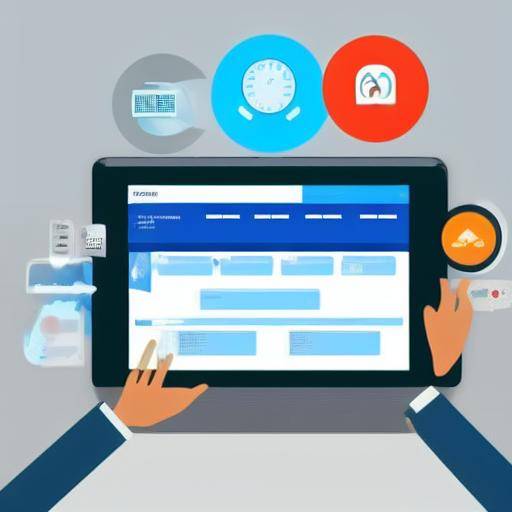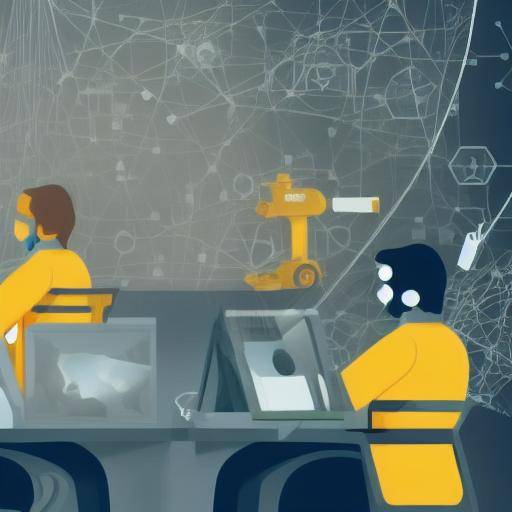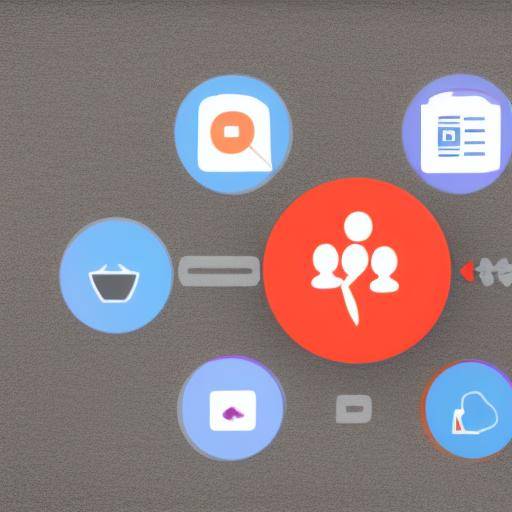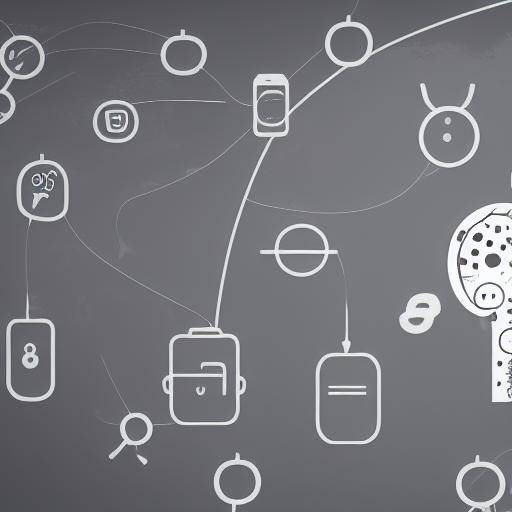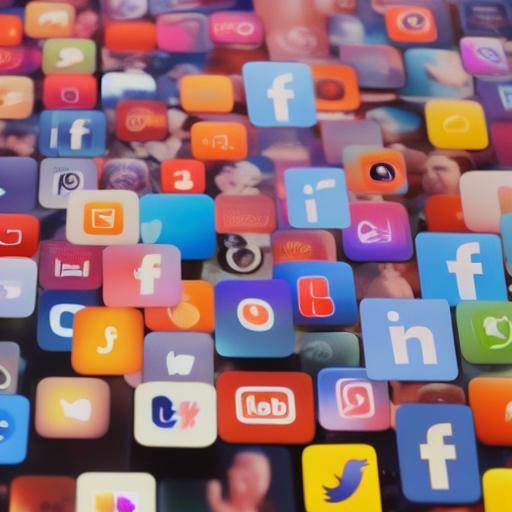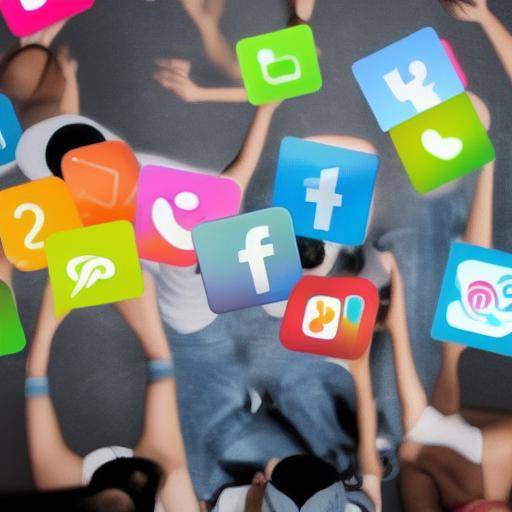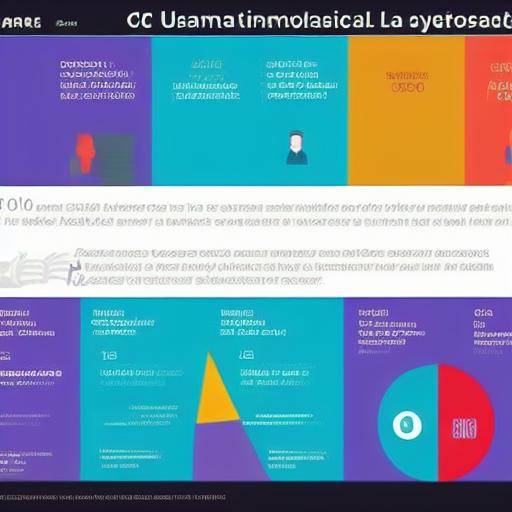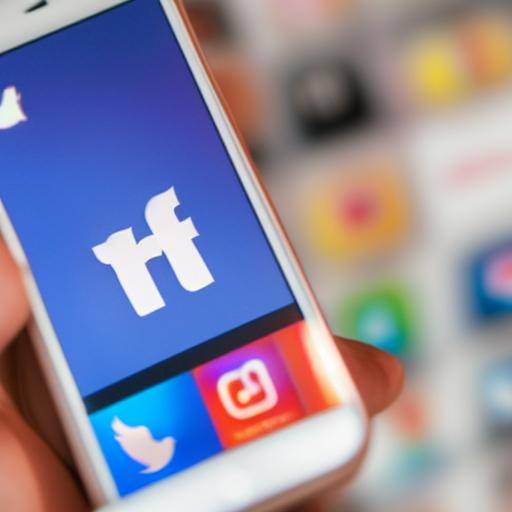
Social networks have revolutionized the way we communicate, interact and share information in the modern era. Their impact on personal communication is undeniable, transforming the way we connect with others, expressing our thoughts and experiences, and forging relationships. In this article, we will thoroughly explore the role of social networks in personal communication, their evolution over time, the possible implications in society and the future of human interaction in an increasingly technological world.
Introduction
Social networks they have played a crucial role in the way we communicate today. Since the arrival of platforms such as Facebook, Twitter, Instagram and LinkedIn, we have not only experienced a transformation in the way we connect with friends, family and colleagues, but also in how we express ourselves individually and collectively. In this sense, it is vital to understand the impact these platforms have had on our personal communication and how they have influenced our daily interactions.
Throughout this article, we will address the historical, cultural and technological dimensions that have shaped social networks as we know them today. In addition, we will explore the sociological, psychological and anthropological implications of these platforms, as well as the role they play in the evolution of human relations in a digital context. We will also focus on the challenges and opportunities that arise in the field of personal communication as we embrace technology and social networks as an integral part of our daily lives.
History and Background
The emergence of social networks is not a recent event, but the result of decades of advances in communications, computer science and connectivity. To understand its current impact, it is essential to explore its evolution over time and its historical roots. From the first messaging systems to the explosion of interactive platforms, social networks have experienced remarkable development in recent decades.
Origins and Development
The concept of connecting online and sharing information through computer networks dates back to the early years of the internet. In the mid-1990s platforms like Six Degrees were erected as the precursors of what we now know as social networks. These first incursions laid the basis for online interaction based on profiles, connections and content sharing capacity.
As digital technology advanced, more sophisticated platforms emerged, such as Friendster and MySpace, which paved the way for integrating multimedia elements, blogs and communication tools into the profile pages. These advances laid the foundations of the modern era of social networks, marked by the rise of giants like Facebook, Twitter, Instagram and Snapchat.
Significant issues
The emergence of Facebook in 2004 was a turning point in the history of social networks. The platform, created by Mark Zuckerberg in a Harvard bedroom, redefined online communication by providing an intuitive interface to share photos, messages and status updates with friends and followers. This milestone marked the beginning of the era of social networks as we know it today, characterized by the omnipresence of mobile platforms and global interconnection.
Detailed Analysis
The impact of social networks on personal communication goes beyond simple online interaction. These platforms have transformed patterns of behavior, power dynamics and cultural influence in our society. It is essential to analyze in depth the current benefits, challenges and trends to fully understand their impact on our daily lives.
Benefits and Opportunities
Social networks have provided an unprecedented means of connecting people from various parts of the world, facilitating real-time communication and the exchange of significant content. From the promotion of free expression to the dissemination of news and events, these platforms have democratized access to information and have allowed the voices previously marginalized to be heard.
Social networks have also served as catalysts for social movements and activism, providing individuals with the ability to organize, generate awareness and promote socio-political changes. Recent examples, such as the Arab Spring and the Black Lives Matter movement, have demonstrated the transformative potential of these platforms in the political-social sphere.
Challenges and Considerations
However, the impact of social networks on personal communication has also raised significant challenges. From the question of privacy and security of personal data to the psychological effects of constant exposure to social networks, there are legitimate concerns about their influence in society. The spread of false news, political polarization and addiction to social validation are problematic aspects that require critical reflection and measures to effectively address them.
Moreover, the emergence of disinformation and the spread of hate speech raise serious questions about the responsibility of social networks in the regulation and moderation of content. These challenges have generated intense debate on the role of technology platforms in society and led to calls for greater transparency and accountability by social media companies.
Current Trends and Futures
In the era of social networks, emerging trends are constantly redefining the dynamics of personal communication. From the gamification of social interaction to the integration of increased reality and virtual reality into platforms, emerging technologies are opening up new possibilities for online expression and commitment.
In addition, artificial intelligence and data analysis are transforming the way content is customized and connects users with relevant experiences. The continuous evolution of algorithms and recommendations functions is changing the way we relate to information and people on social networks, raising questions about the nature of authenticity and online representation.
Comprehensive review
The growing intersection between social networks, personal communication and technology has led to a number of practical applications and best practices that shape how we interact online. Deeply exploring these aspects will allow us to better understand the scope and impact of this phenomenon in our society.
Case applications and studies
The influence of social networks in personal communication is illustrated in a variety of contexts, from the personal sphere to the professional sphere. The platforms like LinkedIn have redefined the way we seek employment, we connect with colleagues and establish professional networks, while Instagram and Pinterest have transformed the way we share and consume visual content.
The rise of influencers and the care economy on platforms such as YouTube and TikTok has generated a new paradigm of communication mediated by personality, authenticity and social influence. These case studies provide a detailed overview of how social networks have redefined the dynamics of personal communication in various spheres of life.
Perspectives of Experts and Future
Incorporating the opinions of experts in the field of social networks and personal communication allows us to gain a deeper understanding of the implications and future prospects of this phenomenon. Analysis of researchers, sociologists, psychologists and digital marketing professionals provide a multidisciplinary vision that enriches our understanding of the continuous evolution of social networks and their impact on personal communication.
These perspectives guide us to the future, exploring the potential of social networks in creating meaningful communities, promoting empathy and collaboration, and developing new forms of creative expression. At the same time, they pose challenges around privacy, ethics and inclusion that require critical reflection and proactive actions.
Conclusion
In short, the impact of social networks on personal communication is a phenomenon with multidimensional implications covering technological, sociological, psychological and cultural aspects. Being a facilitator of both opportunities and challenges, social networks have transformed the way we connect, share and interact in the digital world.
In reflecting on historical evolution, benefits, challenges and emerging trends, we can glimpse the complex panorama of personal communication in the twenty-first century and anticipate future transformations that will continue to shape our experience in social networks.
Frequently asked questions
How have social networks changed the way we communicate on a personal level?
Social networks have provided an unprecedented means of connecting with people around the world, sharing experiences and expressing ourselves creatively. However, they have also impacted the way we build and maintain relationships, influencing personal and social dynamics.
What psychological effects can social networks have on personal communication?
Excessive use of social networks can generate anxiety, social comparison and affect self-esteem. Likewise, the constant scrutiny of the life of others and the pressure to maintain an idealized image can have a significant impact on mental health.
How can people manage their use of social networks in personal communication in a healthy way?
It is essential to establish clear limits in the time of use of social networks, cultivate a critical awareness of the veracity of content and encourage meaningful interactions outside the digital sphere. The practice of moderation and self-care are key to maintaining a balanced relationship with social networks.
What role do social networks play in the professional and labour sphere?
Social networks have redefined how we seek employment, build professional networks and promote our personal brand. Platforms like LinkedIn have become key tools for professional development and business connections.
What is the future of social media in personal communication?
As emerging technologies such as increased reality, artificial intelligence and virtual reality continue to evolve, social networks are expected to reinvent the way we relate online. The development of more immersive and personalized experiences will probably further redefine personal communication in the future.
How can companies use social networks to improve communication with their customers effectively?
Businesses should focus on creating authentic and relevant content that resonates with their audience, foster commitment through bidirectional interaction and actively listen to customer feedback to improve their customer service and offer.
In conclusion, social networks have played a key role in how we communicate at the personal level and will remain a constantly evolving field that shapes our interactions, relationships and experiences in the digital world.

